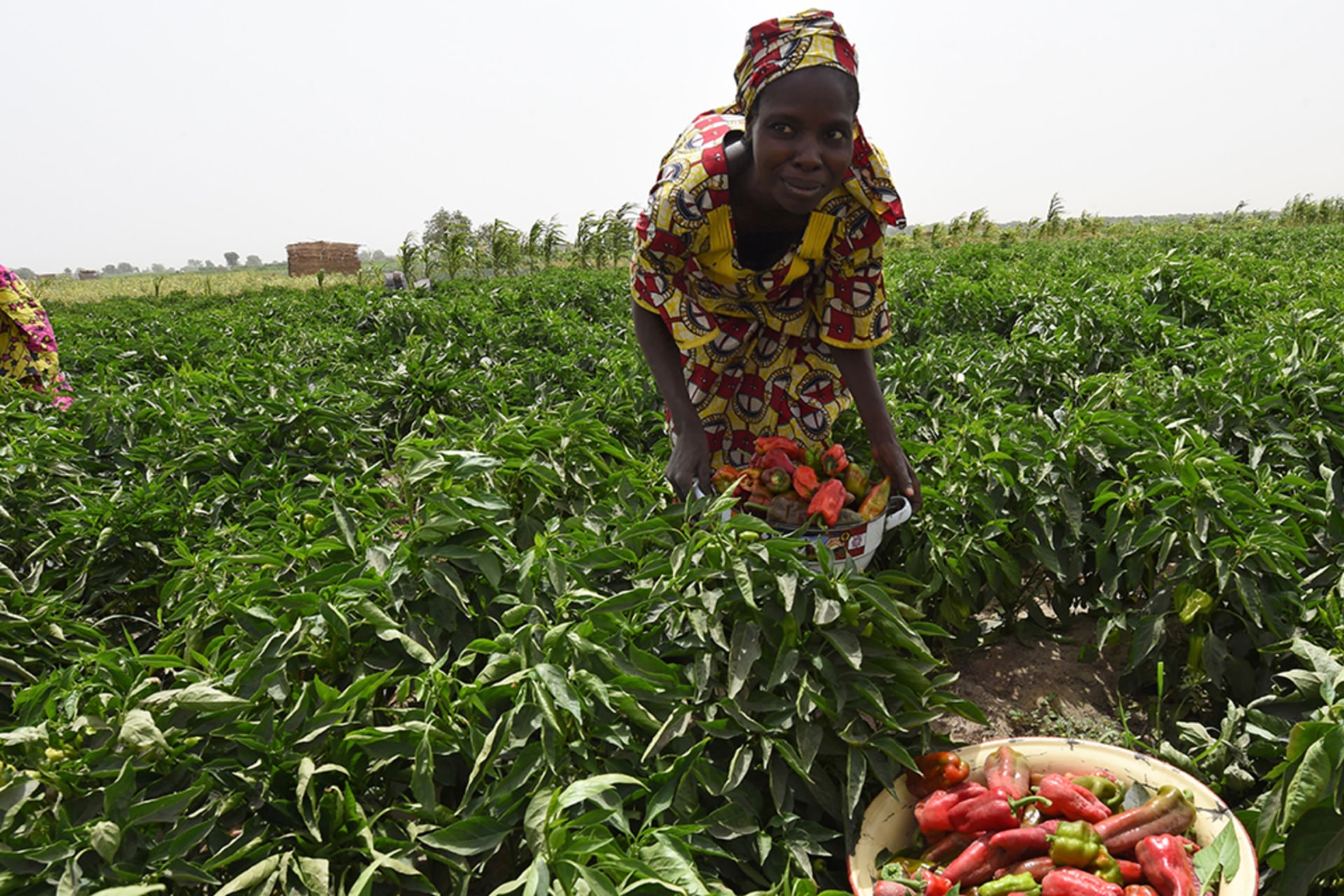Ensuring Women’s Land Rights in Nigeria Can Mitigate Effects of Climate Change

By experts and staff
- Published
By
- Guest Blogger for John Campbell
Elizabeth Munn is the Spring 2019 volunteer intern with the Africa program at the Council on Foreign Relations in Washington, DC. She is a student at George Mason University, studying global affairs and African studies.
Women are responsible for 70 to 80 percent of all agricultural labor in Nigeria, and according to federal and state law, they have the right to hold and inherit land. But, only 10 percent of land owners in Nigeria are women. This discrepancy is also present elsewhere in Africa and around the world. In Nigeria, it is due in large part to the application of customary law to land and property ownership, which is more likely to be enforced and respected than law promulgated by federal and state governments. Under customary law, women rarely inherit land and typically cannot obtain land rights on their own. African communities will be some of the hardest hit by climate change, but protecting women’s land rights can help mitigate its effects.
Both customary law in the south and Islamic law in the north discriminate against wives and daughters in land inheritance, but there are important distinctions. According to Hadiza Bala Usman, the head of the Nigerian Ports Authority, in the north women are “conditioned to think that they’re not meant to be out there.” For example, it is typical of a daughter in northern Nigeria willingly to relinquish any land she has inherited to her brothers as a gesture of familial allegiance.
The benefits of giving women more ownership of the land they work is evident. For example, to the south, in Ogun State, a devastating 2017 flood destroyed a significant portion of Ekaite Monday’s crops. A mother of three, she has since utilized a local strategy of scattering her cultivated land over a large area, thereby ensuring that some of her crops remain unaffected by flooding in the future. But she was only able to do this because she owned the land she worked. Many women in Nigeria and across Africa are not able to make such decisions.
Sub-Saharan Africa is one of the most vulnerable regions to climate change, and it is has already been feeling the effects. In Nigeria alone, 1.7 million people are food insecure because of conflict driven or exacerbated by climate change. Due to climate change and other factors, the amount of arable land is decreasing as the population grows, threatening the 70 percent of Africans who rely on the land to survive. Sub-Saharan Africa has the lowest cereal crop yields in the world, which is only predicted to worsen if the region fails to adapt.
Because women perform the majority of agricultural labor in Nigeria and elsewhere, they tend to have a more intimate relationship with the land than men. Studies have shown that women in Africa often hold traditional knowledge of weather patterns and seed varieties that enhance crop biodiversity and food security. In one such study, two groups of farmers in Liberia were asked to identify fifteen different seed varieties; one group only named a handful, while the other group, comprised entirely of women, identified and described all fifteen varieties. Ekaite Monday’s resiliency demonstrates that the knowledge and skills of many rural African women allow them better to respond to climate-caused food shortages and farm more sustainably than men. Male landowners, on the other hand, are more likely to be market-oriented and therefore to grow commercialized crops that contribute to biodiversity loss.
It is important to understand how little formal law influences the lives of some rural women, including those in Nigeria. In order to ensure women’s right to land, these laws must therefore be adequately enforced. In general, women’s management of land in Africa fosters a more sustainable relationship between humans and the environment and improves resiliency to climate change. If women are empowered to own the land they work on, their communities will be better off.